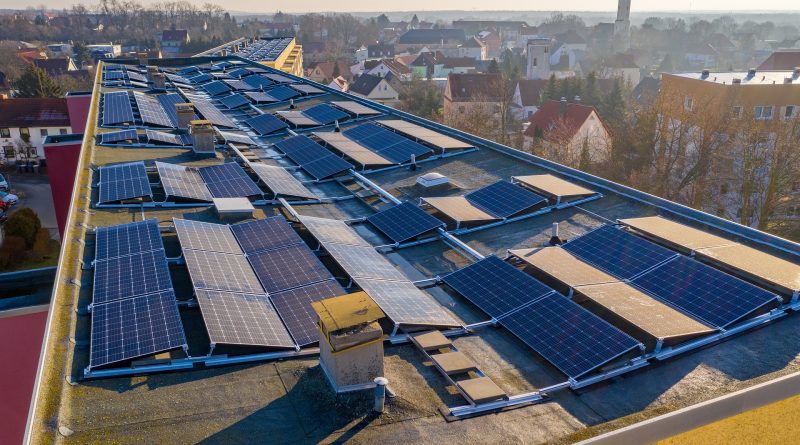Solar Energy Cost Per kWh: Understanding Expenses
The Cost of Solar Energy per kWh
Solar energy has become an increasingly popular source of renewable energy as we strive for a more sustainable future. With its ability to harness the power of the sun and provide clean electricity, many individuals and businesses are considering investing in solar power systems. However, one of the most common questions that arises during these discussions is the cost of solar energy per kilowatt-hour (kWh). In this blog, we will explore the various factors that influence the cost of solar energy and how it compares to other sources of electricity.
Factors Affecting the Cost of Solar Energy
To understand the cost of solar energy per kWh, it is essential to consider the factors that contribute to it. These factors mainly include the initial installation costs, the cost of solar panels, and the ongoing maintenance expenses.
1. Initial Installation Costs
The initial installation costs consist of the expenses associated with designing and installing a solar power system. These costs include the solar panels, inverters, wiring, mounting structures, and other necessary equipment. Additionally, the complexity of the installation, such as the type of roof and the location, may also affect the price. Typically, the upfront installation costs are the most significant portion of the total cost of solar energy.
2. Cost of Solar Panels
The cost of solar panels is a crucial aspect to consider when evaluating the cost per kWh of solar energy. Over the past decade, the price of solar panels has significantly decreased due to advancements in technology and increased market competition. However, it is essential to choose high-quality panels that have a higher initial cost but offer better efficiency and longevity.
3. Ongoing Maintenance Expenses
Solar energy systems generally require minimal maintenance. However, routine inspections, cleaning, and occasional repairs may be necessary. These maintenance expenses, though relatively low, should also be considered when calculating the cost of solar energy per kWh.
Comparing the Cost of Solar Energy to Other Sources
Solar energy has become increasingly cost-competitive in recent years. According to the U.S. Department of Energy, the cost per kWh of solar energy has decreased by nearly 90% since 2010, making it a viable alternative to traditional sources of electricity. When comparing the cost of solar energy to other sources, such as fossil fuels and nuclear power, solar energy is becoming more affordable.
1. Fossil Fuels
Fossil fuels, such as coal and natural gas, have traditionally been cheaper sources of electricity. However, the price of fossil fuels is subject to fluctuations due to market conditions and geopolitical factors. Additionally, the environmental impact associated with burning fossil fuels and the costs of mitigating their negative effects should be taken into account. In recent years, solar energy has become cost-competitive with fossil fuels, especially in regions with abundant sunlight.
2. Nuclear Power
Nuclear power is another source of energy that has historically been considered relatively inexpensive. However, the high upfront costs of building and maintaining nuclear power plants, along with concerns over safety and waste management, have made solar energy a more attractive option for many.
Conclusion
Unlock the understanding of solar energy expenses per kWh with SolarClue® as your guide. Learn how the cost is calculated and explore key factors influencing expenses in 2024. Gain insights into the average cost range, empowering you to estimate savings and make informed decisions about transitioning to solar power. Let SolarClue® guide you in maximizing energy production and efficiency to reduce the overall cost per kWh, optimizing your solar installations for savings. Discover the impact of government incentives on reducing effective costs and stay updated on technological advancements influencing solar energy expenses. Address concerns about affordability with tips on maintenance, choosing efficient appliances, and leveraging smart technologies. Educate yourself on the potential long-term savings and consider the benefits of grid-tied systems. Let SolarClue® assist you in evaluating quotes for transparency and choosing cost-effective and reputable professionals. Join our community for shared experiences and collaborative learning in your solar journey.
Frequently Asked Questions
SolarClue® helps users understand the key factors influencing expenses and how the cost per kWh for solar energy is calculated in 2024.
SolarClue® provides insights into the average cost range per kWh for solar energy, enabling users to estimate savings and make informed decisions about transitioning to solar power in 2024.
SolarClue® guides users in maximizing energy production and efficiency to reduce the overall cost per kWh, ensuring that their solar installations are optimized for savings in 2024.
SolarClue® assists users in understanding the impact of government incentives and rebates on reducing the effective cost per kWh for solar energy, making the transition more financially viable in 2024.
SolarClue® provides information on the role of technological advancements and innovations in influencing the cost per kWh for solar energy, helping users stay updated on the latest trends in 2024.
SolarClue® addresses concerns about the affordability of solar energy, offering tips on system maintenance, choosing efficient appliances, and leveraging smart technologies to enhance savings in 2024.
SolarClue® educates users on the potential long-term savings associated with solar energy, emphasizing the importance of considering the overall economic benefits over the life of the system in 2024.
SolarClue® provides information on the role of grid-tied systems in influencing the cost per kWh for solar energy, guiding users on the benefits and considerations of connecting their solar installations to the grid in 2024.
SolarClue® assists users in evaluating quotes from solar installers, ensuring transparency in pricing, and helping users choose cost-effective and reputable professionals for their solar installations in 2024.
SolarClue® fosters a community where users share their experiences with solar energy costs per kWh, creating a platform for collaborative learning and support in 2024.




